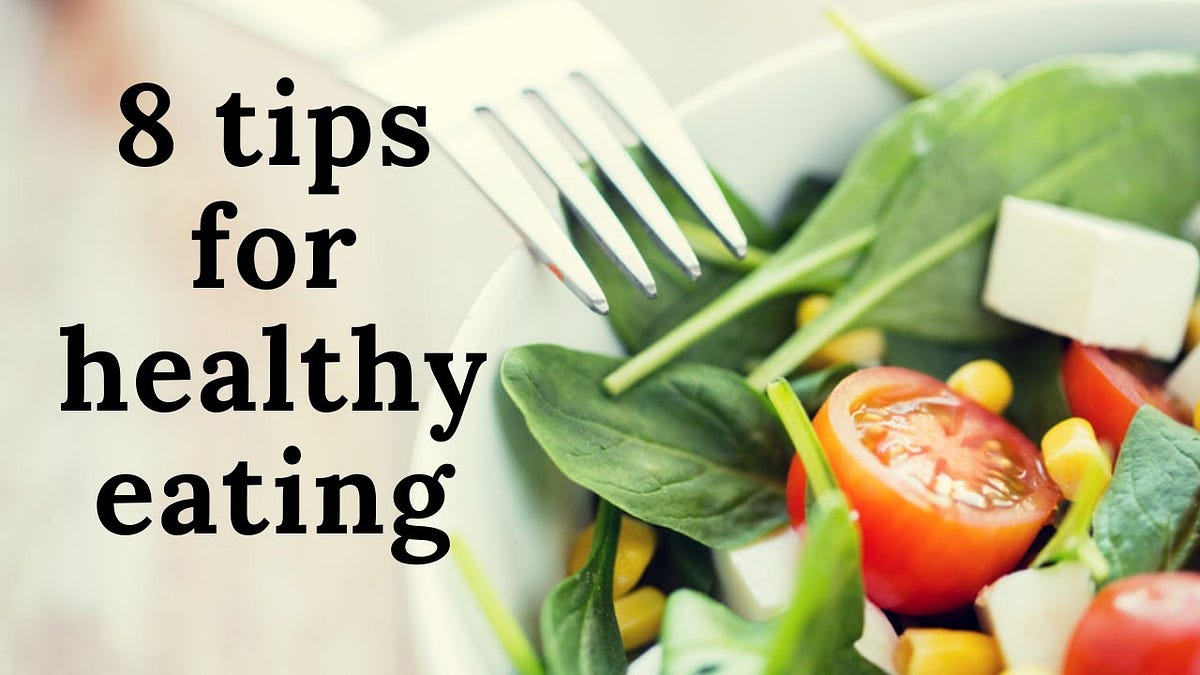
Healthy eating can help maintain a healthy weight and reduce the risk of heart disease, diabetes and other chronic diseases. It can also improve mood and energy levels.
Make vegetables and fruit the stars of your diet. Choose whole grains over refined, and cut down on sugary beverages and high-fat meats and cheeses.
Eat a variety of foods
Eating a variety of foods helps ensure you get enough of the nutrients your body needs. It also keeps your diet interesting and allows you to try new recipes.
Different foods provide different types and amounts of nutrients. For example, oranges contain vitamin C while almonds supply vitamin E. Choose a wide range of foods from all the food groups. Limit foods that are high in saturated fat, added sugar and salt as these can increase your risk of obesity, tooth decay and heart disease.
Eat more vegetables
Vegetables provide a wealth of nutrients that may help to reduce the risk of disease, improve eye health and fight signs of aging. Filling your plate with five servings of vegetables a day could also boost your weight loss and keep you feeling full.
Make vegetables and fruit the stars of your meals. Replace processed and sugary snacks with veggies, and try adding a range of different colors to your diet to get a variety of nutrients.
Eat more fruits
Fancy “super fruits” like guava, mangosteen and acai may boast standout nutrient profiles, but research shows that the ordinary produce items that make it into your shopping cart week after week can have some pretty impressive health benefits too.
Eating plenty of fruit is important for a healthy diet. But how much is too much?
Fruit provides nutrients you need and is naturally low in calories. Eat a variety of fresh, frozen, canned and dried fruits, but limit fruit juice – it can have added sugars.
Eat more whole grains
While carbs have gotten a bad rap recently, the evidence supports that whole grains (including brown rice, oats, wheat or barley) are healthy. Carbohydrates are the body’s main energy source.
Eating more whole grains can help reduce your risk of heart disease and diabetes. Choose whole grain bread, cereal and pasta – making sure that the word ‘whole grain’ appears first in the ingredient list. Also, look for ‘lower sodium’ and’reduced sugar’ on the label. These foods will provide more health benefits than those that are loaded with added sugar and salt.
Eat less saturated fat
Fat is an important nutrient, but too much saturated fat increases your risk of high cholesterol and heart disease. Try to keep saturated fats to less than a third of your daily calories.
This means limiting the amount of cheese, red meat and tropical oils you eat. It also means choosing lower fat milk, removing skin from poultry and baking rather than frying. Checking food labels (or using calorie counter apps on your smart phone) can help.
Eat less sodium
Salt is found naturally in many foods, but most of the sodium we eat comes from processed foods and restaurant meals. When shopping for packaged foods, check the Nutrition Facts label to compare sodium levels.
Choose fresh, unprocessed whole foods and limit smoked or salted meats (such as bacon, ham, frankfurters and sausage), pizza, burritos, salad dressings, bottled sauces and condiments, ketchup, and pickles and olives. Drain canned vegetables before using and select those that are low in sodium.
Eat less sugar
Sugary drinks, processed foods and sweets can cause high blood sugar levels, which leads to obesity, diabetes and heart disease. Eating less sugar can help lower your risk of these conditions.
Try to reduce added sugars (found in candy, cookies and other processed foods) by reading labels. Learn to spot sugar lingo by looking for words like cane, syrup, honey, molasses and anything ending in -ose on ingredient lists. Ditch soda and other sugary drinks for water, unsweetened tea or coffee, 100% fruit juices and seltzer.
Eat more protein
Protein is an essential macronutrient that fuels cells and helps keep you healthy. The Dietary Guidelines recommend that you eat a variety of protein-rich foods to help meet your nutritional needs.
Choose a wide range of protein sources including legumes (beans and peas), soy products, unsalted nuts and seeds, fish, poultry, lean meat and eggs. Limit high-fat dairy foods and limit or avoid added sugars. Drink water or beverages without added sugar to quench your thirst.
